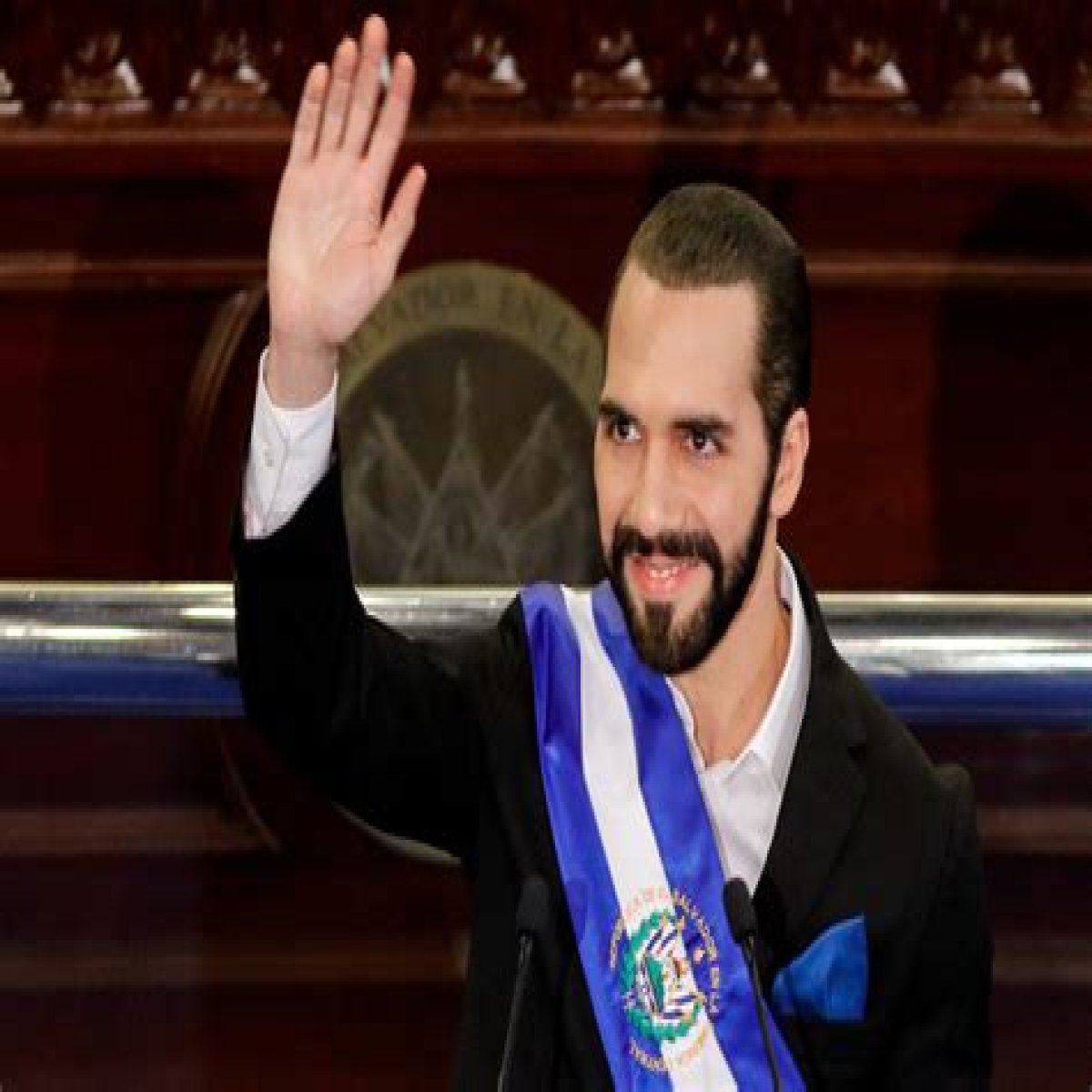Nayib Bukele, the current president of El Salvador, has captured both national and international attention with his unorthodox leadership style and bold policies aimed at transforming the country. One aspect that often comes into focus when discussing his leadership is his ethnicity. In a nation marked by a rich tapestry of cultural influences, understanding Bukele’s ethnicity provides insight into his identity and the political landscape of El Salvador. This article will delve into the various aspects of Nayib Bukele's ethnicity, exploring how it shapes his policies and connects him to the Salvadoran people.
El Salvador's history is steeped in a mix of indigenous cultures and colonial influences, which has resulted in a diverse population. Nayib Bukele, who identifies with this rich heritage, has been vocal about his pride in being Salvadoran. His ethnicity not only influences his personal identity but also plays a role in how he navigates the complexities of governance in a nation still grappling with its past. In this article, we will uncover the layers of Nayib Bukele's ethnicity, providing a comprehensive understanding of how it resonates within the broader Salvadoran context.
As we examine Nayib Bukele's ethnicity, we will also explore the implications of his background on his presidency and the cultural dynamics of El Salvador. From his family history to his policies, there is much to discuss about how Bukele's identity shapes his vision for the country. Join us as we embark on this enlightening journey to understand Nayib Bukele's ethnicity and its significance in El Salvador.
- Who is Nayib Bukele? A Brief Biography
- What is Nayib Bukele’s Ethnic Background?
- How Does Bukele’s Ethnicity Influence His Leadership?
- What Challenges Does Bukele Face Related to His Ethnicity?
- How Has Bukele Addressed Ethnic Diversity in His Policies?
- Conclusion: The Significance of Nayib Bukele’s Ethnicity
Who is Nayib Bukele? A Brief Biography
Nayib Bukele was born on July 24, 1981, in San Salvador, El Salvador. He is the son of a Palestinian father and a Salvadoran mother, which adds a unique dimension to his ethnic background. Bukele studied at the Central American University and later ventured into the world of business and politics. His political career began as the mayor of Nuevo Cuscatlán, subsequently leading to his election as the mayor of San Salvador. In 2019, he became the president of El Salvador, running on a platform of transparency and anti-corruption.
| Full Name | Nayib Bukele |
|---|---|
| Date of Birth | July 24, 1981 |
| Nationality | Salvadoran |
| Ethnicity | Palestinian-Salvadoran |
| Education | Central American University |
| Political Party | New Ideas (Nuevas Ideas) |
| Position | President of El Salvador |
What is Nayib Bukele’s Ethnic Background?
Nayib Bukele’s ethnic background is a combination of Palestinian and Salvadoran heritage. His father immigrated to El Salvador from Palestine, which adds a layer of identity that connects Bukele to the Middle East while also grounding him firmly in Salvadoran culture. His mixed heritage allows him to engage with different cultural perspectives, which may influence his policies and approach to leadership.
How Does Bukele’s Ethnicity Influence His Leadership?
Understanding Nayib Bukele's ethnicity is critical to comprehending his approach to governance. His diverse background enables him to empathize with various segments of the population. This has been particularly important in a country with a history of social divides and economic disparity. By embracing his ethnic identity, Bukele aims to unify the Salvadoran people under a common vision, despite their diverse backgrounds.
Does Bukele’s Ethnicity Affect His Popularity?
Yes, Nayib Bukele's ethnicity plays a role in his popularity among Salvadorans. His mixed heritage resonates with many citizens who share similar backgrounds, allowing him to connect on a personal level with the electorate. Furthermore, his portrayal of himself as a leader for all Salvadorans, regardless of their ethnic backgrounds, helps to foster a sense of unity in a country often plagued by division.
What Challenges Does Bukele Face Related to His Ethnicity?
Despite his popularity, Nayib Bukele faces challenges that stem from his ethnic background. In a country with a history of discrimination and socio-economic inequality, some segments of the population may view him through the lens of his mixed heritage. This can lead to skepticism about his commitment to addressing the needs of all Salvadorans, particularly those from indigenous backgrounds who have historically faced marginalization.
How Has Bukele Addressed Ethnic Diversity in His Policies?
In his presidency, Nayib Bukele has made efforts to address ethnic diversity through various policies aimed at promoting inclusion. He has spoken out against discrimination and has sought to create a government that represents the diverse demographics of El Salvador. His administration has focused on economic opportunities for all citizens, but some critics argue that more needs to be done to specifically target the needs of marginalized groups.
What Is the Future of Nayib Bukele’s Ethnic Identity in Politics?
The future of Nayib Bukele's ethnic identity in politics remains uncertain, particularly as he continues to navigate challenges within his administration. His ability to maintain support from a diverse electorate will depend on his responsiveness to the needs of all Salvadorans. As he forges ahead, it will be crucial for Bukele to leverage his ethnic identity as a unifying force, ultimately striving to bridge divides within the country.
Conclusion: The Significance of Nayib Bukele’s Ethnicity
Nayib Bukele's ethnicity is more than just a personal characteristic; it is a vital element that shapes his presidency and the political landscape of El Salvador. As a leader with a rich cultural background, Bukele has the potential to foster unity and inclusivity in a nation that grapples with its history. By understanding the significance of Nayib Bukele's ethnicity, we gain deeper insight into his policies and the future of El Salvador under his leadership.
Discovering Chris Brown's Sister: A Journey Beyond The SpotlightMolly Nobblitt: The Journey Of A Rising StarUnveiling The Mystery: Who Is Mike Atherton's Wife?
